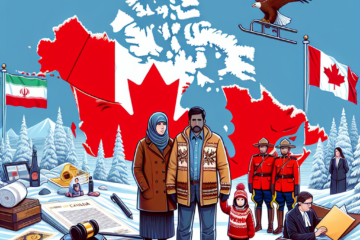The Canadian Immigration and Refugee Protection Act (IRPA), enacted in 2001, is a comprehensive piece of legislation that oversees the admission of foreign nationals to Canada. This legislation seeks to fulfill the country’s social, economic, and humanitarian commitments, while also protecting the health, safety, and security of Canadians. One of the notable aspects of this act is the right of appeal granted to individuals facing adverse immigration decisions. Understanding this right of appeal in the context of the IRPA is crucial to fully grasp the depth of immigrant rights in Canada.
The right to appeal under the IRPA is codified in Part 1 of the Act, Division 6. The appeal procedures are largely administered by the Immigration Appeal Division (IAD) of the Immigration and Refugee Board of Canada (IRB). The IRB is an independent administrative tribunal that makes well-reasoned decisions based on Canada’s immigration law. Individuals may appeal to the IAD if they have received a negative decision on an immigration matter from Immigration, Refugees and Citizenship Canada (IRCC) or Canada Border Services Agency (CBSA).
Section 63 of the IRPA explicitly outlines the grounds upon which an individual may appeal an immigration decision. These include refusals of sponsorships for family class members, removal orders issued against permanent residents, protected persons, or foreign nationals holding a permanent resident visa, and decisions outside of Canada on residency obligation under section 28.
In the context of sponsorship refusals, for instance, a Canadian citizen or permanent resident who has sponsored a family member to come to Canada and had their application denied can appeal to the IAD. The appeal must be based on either an incorrect application of immigration law or a procedural fairness issue. The IAD can grant relief on humanitarian and compassionate grounds, considering the best interest of any affected child.
For permanent residents and protected persons, they may appeal removal orders on legal grounds, arguing that the decision was based on an incorrect application of law or a breach of procedural fairness. They can also present humanitarian and compassionate considerations. However, the right of appeal is restricted for those who have committed serious crimes, as outlined in section 64 of the IRPA.
The IRPA provides a robust system that allows foreign nationals to contest decisions that affect their immigration status. However, it’s important to note that the right of appeal is not absolute. Several exceptions limit who can appeal and under what circumstances. For instance, foreign nationals with inadmissibility grounds relating to security, violating human or international rights, serious criminality, or organized criminality cannot appeal a removal order.
Despite these limitations, the right of appeal under the IRPA is a cornerstone of the Canadian immigration system, reflecting the principles of fairness and justice that underpin the country’s legal framework. It provides checks and balances, ensuring that decisions are made correctly and consistently, and providing a recourse for those who believe they have been treated unjustly.
Furthermore, the right of appeal also acknowledges the far-reaching implications of immigration decisions. It recognizes that these decisions do not only affect the individuals in question but also their families, communities, and Canadian society at large. By allowing for appeals, the Act provides a mechanism to reconsider decisions in light of new facts or circumstances, and to ensure that they align with Canada’s broader immigration objectives.
In conclusion, the right of appeal under the Canadian Immigration and Refugee Protection Act plays a critical role in ensuring justice within the country’s immigration system. It enables individuals to challenge adverse immigration decisions, thereby upholding the principles of fairness and due process. The Act, however, also strikes a balance by delineating specific circumstances where this right is curtailed to protect Canada’s security and uphold its commitments under international law.
If you would like to know more about The Right of Appeal under the Canadian Immigration and Refugee Protection Act consult with our immigration consultant.



0 Comments